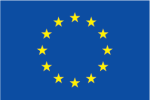Let us share a few observations. The first observation is that in our meetings with PhD candidates we notice that quite a number of cases discussed concern supervision and collaboration with others. We ask them in advance to submit a case based on their own experiences and which they would like to discuss in the meeting. We explain to them that it is not necessary to describe a clear case of misconduct (which they most likely not have experienced so far), but that they can think of situations in the ‘grey zone area’ where they were struggling with the question what the right and most responsible way of conduct in the research practice would be. Unsurprisingly, many cases that are submitted deal with issues of power, disturbed relations with supervisors or colleagues. Underlying are issues of loyalty, power and hierarchical structures, transparency and communication, just to name a few. Examples of cases are supervisors using their power to decide on authorship in manuscripts or decisions on the design of the research project, without letting a PhD have a say. It all happens.
Mariëtte van den Hoven
04 May 2020
No Comments
Developing educational material on supervision and mentoring to stimulate RCR.
Underlying are issues of loyalty, power and hierarchical structures, transparency and communication.
The second observation is that some people raise their eyebrows if we say that we will develop educational tools about supervision and mentoring. To them, it is not immediately clear what the direct relation is between supervision and misconduct or research integrity. In our project we deliberately chose to develop two online modules (Small Private Online Course) on this topic; one addressing early career researchers and one addressing supervisors (and more in general senior researchers).
To them, it is not immediately clear what the direct relation is between supervision and misconduct or research integrity.
But why would we do that? Is the topic not too generic and too loosely related to research integrity and responsible conduct of research? We think that it is not and that addressing this topic is actually core to stimulating responsible conduct of research. Several publications emphasize the relevance of addressing supervision and mentoring in research practices. Think of decisions about authorship. Discussions about authorship, especially if contributions of co-authors vary and change during the research project, often raise feelings of ‘awkwardness’, as people often do not feel very comfortable to address these. Discussing these items in a more open setting, creating possibilities for and a willingness to renegotiate authorship when contributions to the output have changed is, in our opinion, a clear example of responsible conduct of research.
Discussing these items in a more open setting is, in our opinion, a clear example of responsible conduct of research.
Another example is thoroughness and willingness to share data amongst colleagues if this is relevant in a context of group research. If someone has to crosscheck data analyses, it is helpful to have access to the source data. If colleagues are unwilling to share these, or share their own versions of data sets, flaws can easily slip in, and mistakes can easily be made.
Transparency is not only useful for supervisors, but also for colleagues checking the quality of the research.
Transparency about all the steps in the research process, including documentation is not only useful for supervisors, but also for colleagues checking the quality of the research. Core to both these examples is transparency about working methods and a willingness to discuss and communicate about issues that rise in the research process, or in the production of its output. And this is were it often goes wrong: a supervisor is either too busy or to occupied in the eyes of a junior researcher who does not feel up to addressing issues, or thinks that s/he is consuming too much of the time of the supervisor and as a result things are left unaddressed, flaws slip in, mistakes are made, and things are not well documented. We cannot simply blame either supervisors or early career researchers in many of these situations, as both might not always be aware how in research practices communication, honesty and transparency could be improved and what their role in it can be. We are confident that addressing both perspectives and stimulating communication about it in such a way that we steer clear of admissions of blame or ascriptions of bad character and focus on how things can be approved, will support a positive research culture, collegiality and responsible conduct of research. That is why we develop SPOCS on supervision and mentoring. We will start testing these in the fall of 2020.
Recent Posts
- New INTEGRITY study uncovers widespread unethical practice for assigning authorships
- Conflict of interest in research: what is it and why it matters?
- Integrity Games: Empowering students with a gamified learning tool.
- Bad news for reproducibility in Cancer biology.
- Designing a MOOC aimed to empower.
This project received funding from the European Union’s Horizon 2020 research and innovation programme under Grant Agreement No 824586. The European Commission’s support for the production of this material does not constitute an endorsement of the contents, which reflect the views only of the authors, and the Commission cannot be held responsible for any use which may be made of the information contained therein.


Leave a Reply